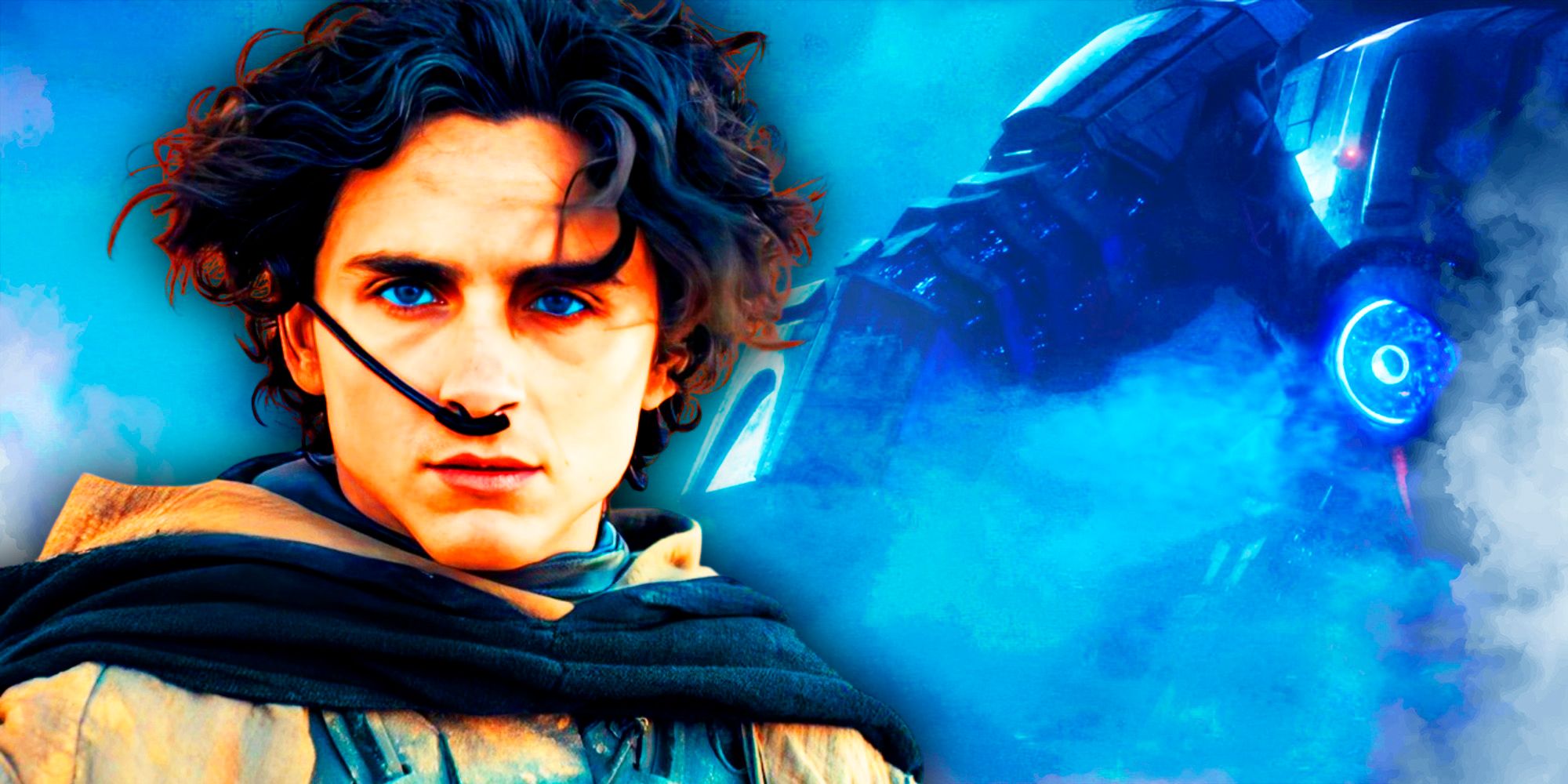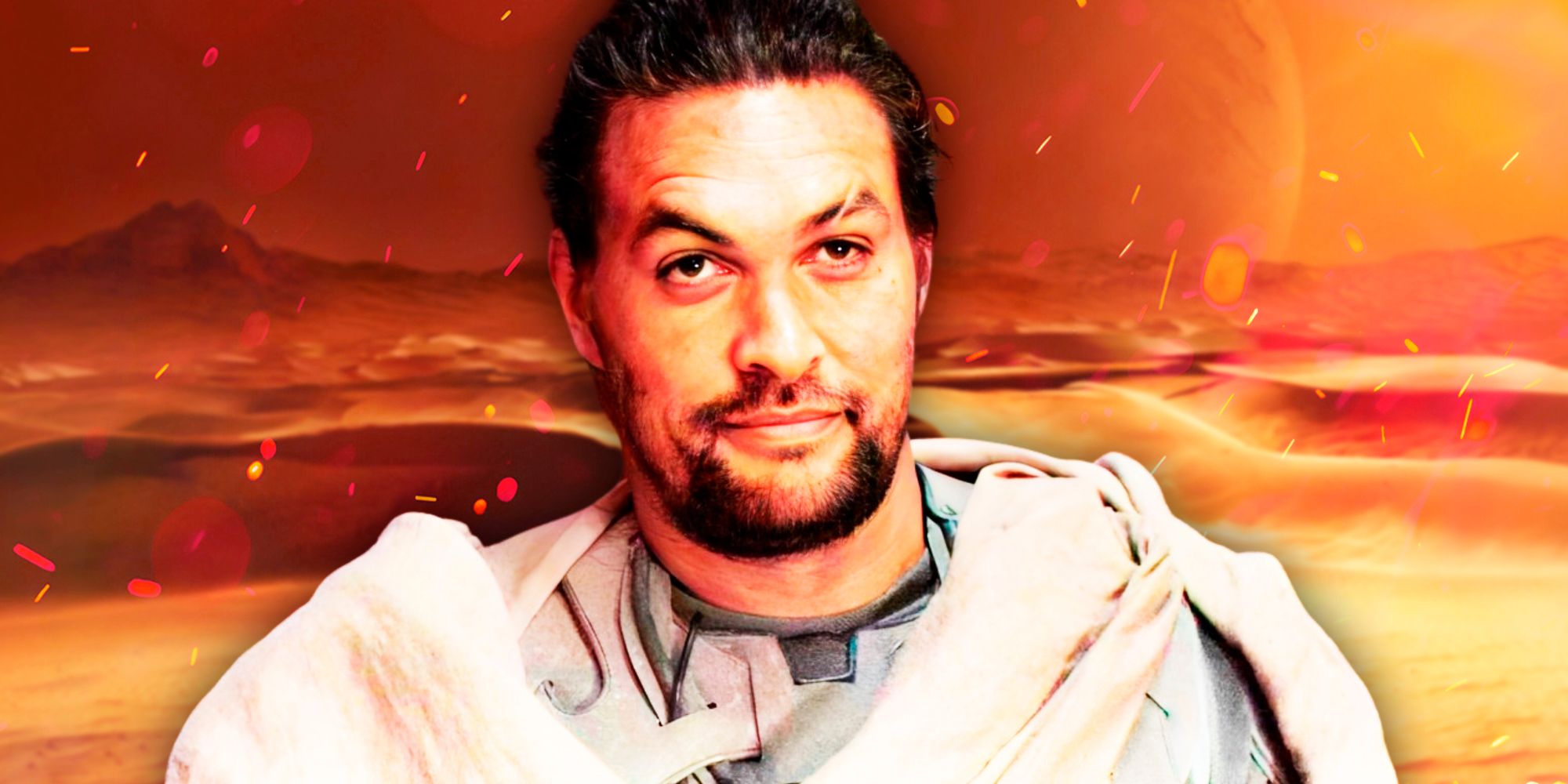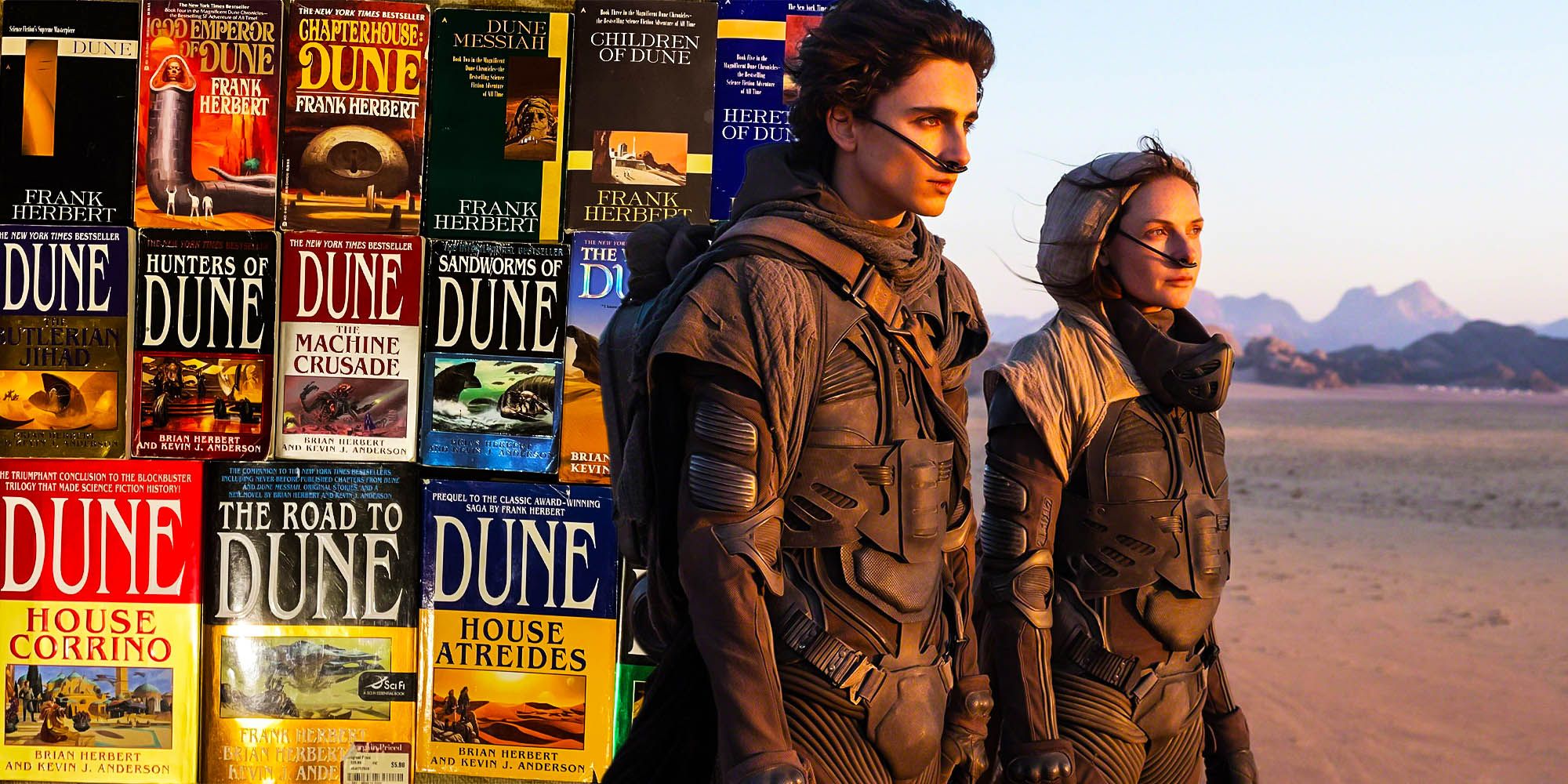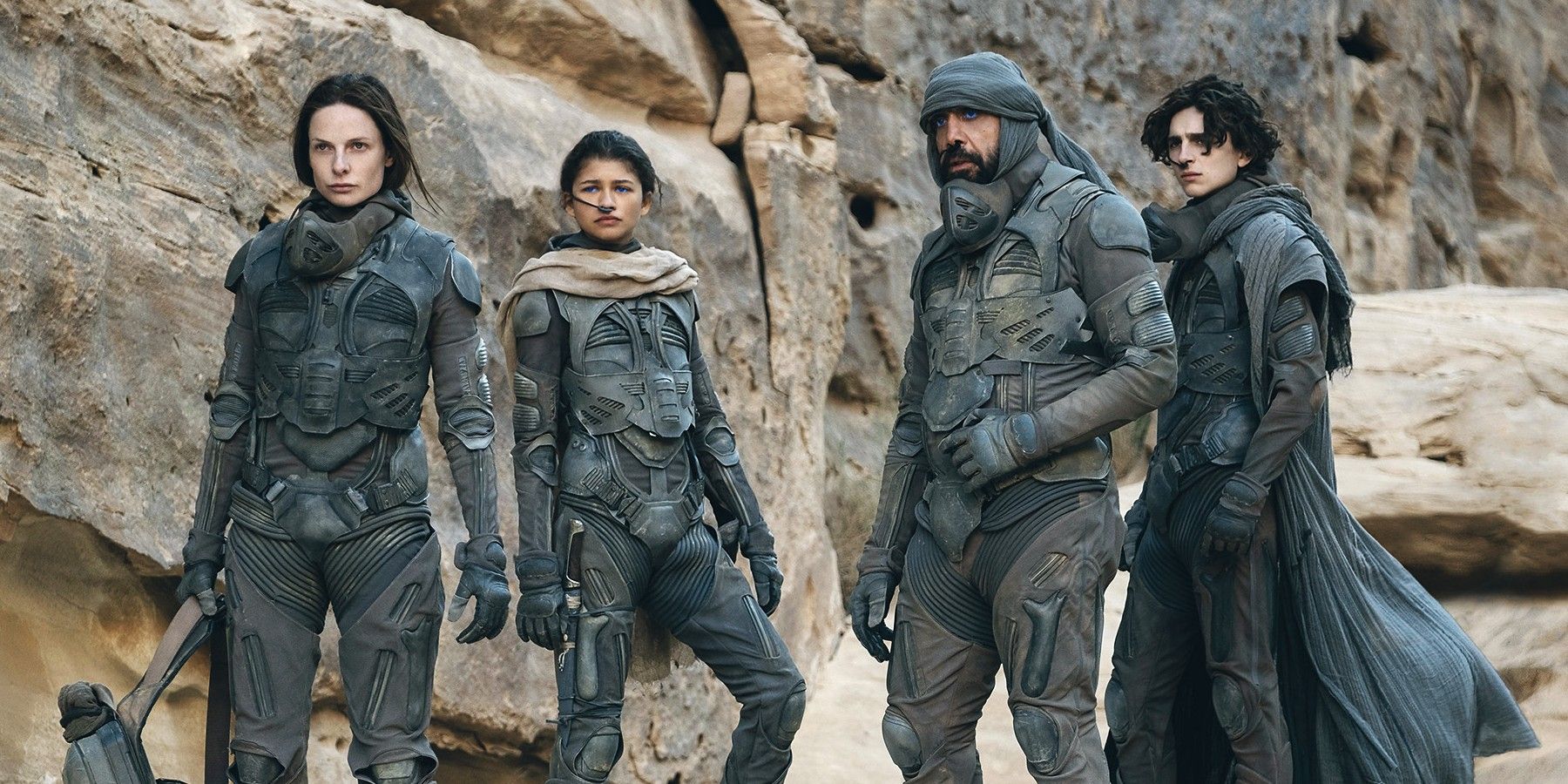
HBO’s Dune: Prophecy explains why there are no computers in the Dune films for any audiences who might have been confused. It’s typical for science fiction to be focused on artificial intelligence or the rising prominence of computers, with movies like The Matrix or Blade Runner as prime examples. But Denis Villeneuve’s Dune films lack AI, which stands out among movies like it. With a feudal society, noble houses, and warriors wielding swords, the movies almost resemble fantasy worlds like Game of Thrones more than they do typical science fiction.
The movie and television franchise is based on Frank Herbert’s Dune novels, with the original 1965 book considered to be one of the most prolific works of the sci-fi genre. The films adapt Frank Herbert’s main Dune story, while the HBO prequel series, set 10,000 years earlier in the timeline, is adapted from the expanded universe books written by Brian Herbert and Kevin J. Anderson. Whether their books are considered “canon” will vary from reader to reader, but the movie & TV adaptation universe uses their content in its storytelling for the Dune: Prophecy series.
Dune’s Prequel Shows The War That Led To Computers & Other “Thinking Machines” Being Banned
Dune: Prophecy Shows Glimpses Of The Butlerian Jihad
Dune: Prophecy’s first episode opens with an exposition sequence that introduces audiences to the war known as the Butlerian Jihad. It shows brief glimpses of a conflict and describes brief details like the war being fought against the “Thinking Machines,” which were after that banned. Humans in the Dune universe became over-reliant on Thinking Machines, which were more sophisticated versions of real-life artificial intelligence, and eventually decided that exterminating them was the only option. However, in Dune: Prophecy, there are still noble families like the Richeses that disagree with the ban.
It’s briefly mentioned in the films that there are no computers of this sort, and it’s a prominent idea in the 1965 book. The quote “Thou shalt not make a machine in the likeness of a human mind” is a commonly known commandment that dates back to the Butlerian Jihad. Dune: Prophecy’s opening scene is the first glance audiences have had at what this conflict may actually have looked like, bringing the Thinking Machines to life on the screen. It’s essential history to note, given its role in the complex political situation established in the TV series.
Machines Being Banned Is A Little More Complicated In Dune Lore
Frank Herbert & Brian Herbert’s Books Offer Differing Explanations
Frank Herbert was the original creator of the Thinking Machines idea and the fact that they’re banned in Dune, with this quote from the original novel summarizing the conflict: “Once men turned their thinking over to machines in the hope that this would set them free. But that only permitted other men with machines to enslave them.” Though, like with many other aspects of the Dune universe, Brian Herbert and Kevin J. Anderson continued to explore the concept in their Legends of Dune book trilogy.
|
Books in the Legends of Dune trilogy |
Release Date |
|---|---|
|
The Butlerian Jihad |
2002 |
|
The Machine Crusade |
2003 |
|
The Battle of Corrin |
2004 |
With that being said, it’s important to briefly note the differences in the Butlerian Jihad and its meaning between Frank Herbert and Brian Herbert’s novels. In God Emperor of Dune, Frank Herbert’s Leto II Atreides describes the war against the Thinking Machines as a conquest to essentially regain humanity from the machines that were becoming more human than them. In Brian Hebert’s books, it’s a much more straightforward conflict between humans and evil robots that want to enslave humanity.
What Technology Is Allowed In The Dune Universe?
There Are Still High-Tech Devices In The Dune Stories
While the Dune universe may not be focused on technology like other sci-fi worlds, it’s certainly not low-tech. There are energy shields that can be used to protect from rapidly approaching projectiles, eliminating the use of guns against those with shields. Spaceships and high-tech vehicles are used for interplanetary travel. Dune: Prophecy’s first episode shows Emperor Javicco Corrino using a hologram to watch footage of an event on Arrakis. Even the stillsuits that have built-in water refineries are far beyond modern technology.

Related
Dune’s New Prequel Introduces The Franchise’s Jason Momoa Replacement – With A Shocking Twist
Dune: Prophecy introduces a character who’s reminiscent of Jason Momoa’s Duncan Idaho, reminding us what we’ve been missing in his absence.
There’s plenty of technology available in the Dune universe that’s crucial to the story. Brian Hebert and Kevin J. Anderson’s novel explores the idea that technology that requires some human input would still be allowed, even if it still has a computing function. The matter of computers and Thinking Machines being banned pertains to technology that has some form of autonomy on its own. Hopefully, Dune: Prophecy will continue to explore this more.









